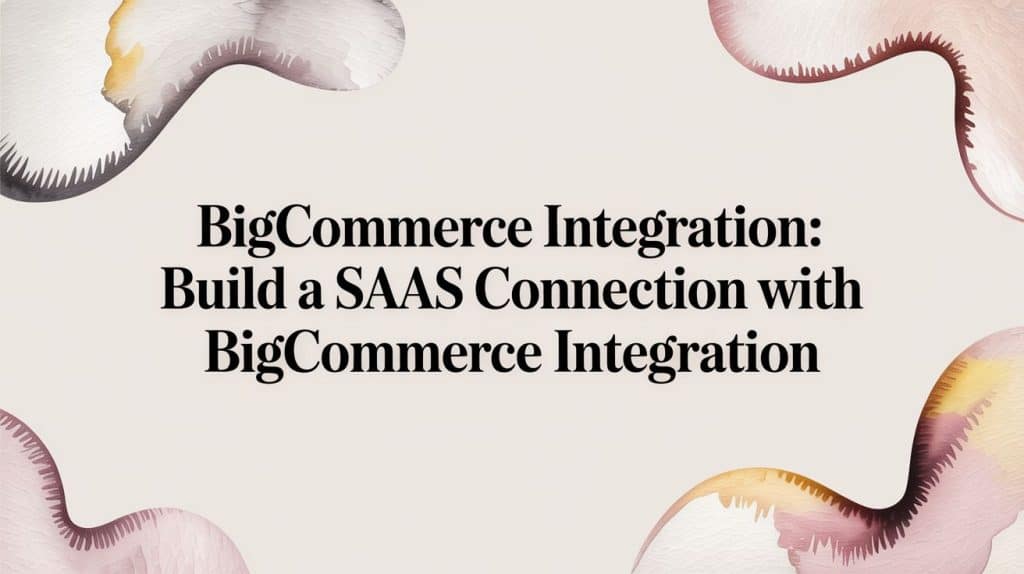
In this competitive environment, one way to gain a larger share of the market is SaaS integration. The more integration with eCommerce platforms you support, the better the chances to expand your customer base.
So what is SaaS (Software-as-a-service) integration? SaaS integration is the process of connecting a SaaS application with another software or cloud-based app through APIs, which allows each solution to work together in a functional way. As a result, once connected the app can request and share data freely with the other system.
One application may require information created in another program. Without integration, your consumer will have to manually enter data from one solution into another, which can be time-consuming and cause mistakes.
All features offered by SaaS applications cannot be implemented without real-time management of orders, products, clients, etc. Namely, they fully depend on eCommerce integration.
The Role of eCommerce API in Integrations
SaaS integration is the process of connecting a Software as a Service application with other apps, platforms, or systems to enable seamless data exchange and automate workflows. It allows a SaaS product to share information with tools, such as CRMs, ERPs, eCommerce platforms, or others, creating a unified ecosystem and expanding functionality without requiring users to switch between different solutions.
eCommerce APIs are the backbone of SaaS integrations for software products, such as shipping tools, ERPs, and inventory management systems. Without them, it's impossible to offer real-time data sync and automate critical operations such as order processing, inventory updates, and product information management across multiple sales channels.
Here’s the list of SaaS platform types that benefit most from eCommerce API integrations:
- Order & Inventory Management Systems (OMS, IMS) – automate order processing and synchronize stock levels across sales channels;
- Shipping & Fulfillment Software – generate shipments, calculate rates, and track deliveries;
- Warehouse Management Systems (WMS) – control stock, track items, and manage batches;
- ERP Systems – centralize financial, warehouse, and logistics data;
- Product Information Management (PIM) – store and update product details in one place;
- Point-of-Sale (POS) Solutions – sync offline store data with online shops;
SaaS integration with an eCommerce platform simplifies your workflow and saves time, money, and resources. In addition, it allows you to access data that would otherwise be inaccessible. For example, the integration development with platforms, such as Magento, Shopify, WooCommerce, or Wix provides access to data from online stores built on them. It includes product data, order details, price information and shipping details. As a case in point, this includes SaaS solutions for inventory and order management, shipping automation, multichannel selling, warehouse management systems (WMS), repricing tools, analytics apps, and more.
SaaS integration with eCommerce platforms via API2Cart
Many SaaS providers can take a lot of time and experience to understand the logic of each system. As a result, integration with a single shopping platform is difficult, but when we talk about connecting to many systems, it becomes much more complicated.
The easiest way to develop SaaS integration with eCommerce platforms is by using an iPaaS solution like API2Cart. It provides a unified API for integration with more than 60 eCommerce platforms and marketplaces, such as Wix, Shopify, Magento eBay, Amazon and many others. As a result, your SaaS application will receive, add, update and synchronize different store data, such as order, products, shipments, customers, categories, etc.
Start your 14-day FREE trial with API2Cart and see how easily you can connect your software to 60+ shopping carts and marketplaces via one unified API. Test real API calls, explore 100+ API methods, and speed up your SaaS integration process without extra development time.



